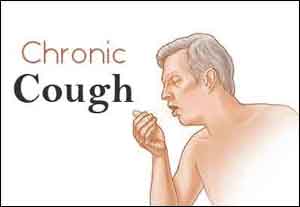- Home
- Editorial
- News
- Practice Guidelines
- Anesthesiology Guidelines
- Cancer Guidelines
- Cardiac Sciences Guidelines
- Critical Care Guidelines
- Dentistry Guidelines
- Dermatology Guidelines
- Diabetes and Endo Guidelines
- Diagnostics Guidelines
- ENT Guidelines
- Featured Practice Guidelines
- Gastroenterology Guidelines
- Geriatrics Guidelines
- Medicine Guidelines
- Nephrology Guidelines
- Neurosciences Guidelines
- Obs and Gynae Guidelines
- Ophthalmology Guidelines
- Orthopaedics Guidelines
- Paediatrics Guidelines
- Psychiatry Guidelines
- Pulmonology Guidelines
- Radiology Guidelines
- Surgery Guidelines
- Urology Guidelines
Chronic Cough and Gastroesophageal Reflux in Children: Chest Guideline

American College of Chest Physicians has released an update to the 2006 CHEST Pediatric Cough guideline on Chronic Cough and Gastroesophageal Reflux in Children.
Chronic cough (>4 weeks duration3) in children, is a common presenting symptom to pulmonologists and allergists. It is associated with the burden and impaired quality of life to the child and their parents. Among the many possible etiologies of pediatric chronic cough, gastroesophageal reflux disease (GERD) has been postulated. While GERD is commonly reported to be associated with a chronic cough in adults, it has not been commonly identified as the cause of pediatric cough.
Whether gastroesophageal reflux (GER) or GER disease (GERD) causes a chronic cough in children is controversial. Using the PICO format, the guideline developers undertook 4 systematic reviews. For children with chronic cough (>4-weeks duration) and without underlying lung disease: (1) who do not have gastrointestinal GER symptoms, should empirical treatment for GERD be used? (2) with gastrointestinal GER symptoms, does treatment for GERD resolve the cough? (3) with or without gastrointestinal GER symptoms, what GER-based therapies should be used and for how long? (4) if GERD is suspected as the cause, what investigations and diagnostic criteria best determine GERD as the cause of the cough?
Following are the major recommendations:
1. For children aged ≤ 14-years with chronic cough (> 4 weeks duration) without an underlying lung disease, we recommend that treatment(s) for GERD should NOT be used when there are no clinical features of gastroesophageal reflux such as recurrent regurgitation, dystonic neck posturing in infants or heartburn/epigastric pain in older children (Grade 1B).
2. For children aged ≤ 14-years with chronic cough (> 4 weeks duration) without an underlying lung disease but who have symptoms and signs or tests consistent with gastroesophageal pathological reflux, we recommend that they are treated for GERD in accordance to evidence-based GERD-specific guidelines.1,2 (Grade 1B)
3. For children aged ≤ 14-years with chronic cough (> 4 weeks duration) without an underlying lung disease but who have symptoms and signs or tests consistent with gastroesophageal pathological reflux, we recommend that acid-suppressive therapy should not be used solely for their chronic cough. (Grade 1C)
4. For children with chronic cough (>4 weeks duration) who do not have an underlying lung disease but with gastrointestinal GER symptoms, we suggest that they be treated for GERD in accordance to evidence-based GERD-specific guidelines1,2 for 4-8 weeks and their response reevaluated (Ungraded Consensus-based Statement).
The agent used for the ‘trial of treatment’ approach is dependent on the child’s age, feeding regime and symptoms.1,2 PPIs and H2RAs should not be used for longer than 4-8 weeks without further evaluation.
5. For children with chronic cough (>4 weeks duration) and without underlying disease, if GERD is suspected as the cause based on GER symptoms, we suggest following the GERD guidelines for investigating children suspected for GERD (Ungraded Consensus-based Statement).
The workup suggested by GERD guidelines is largely dependent on the child’s age and the constellation of symptoms. In most situations, endoscopy is suggested before pHmetry or pH-MII.
For more details click on the link: DOI: 10.1016/j.chest.2019.03.035

Disclaimer: This site is primarily intended for healthcare professionals. Any content/information on this website does not replace the advice of medical and/or health professionals and should not be construed as medical/diagnostic advice/endorsement or prescription. Use of this site is subject to our terms of use, privacy policy, advertisement policy. © 2020 Minerva Medical Treatment Pvt Ltd